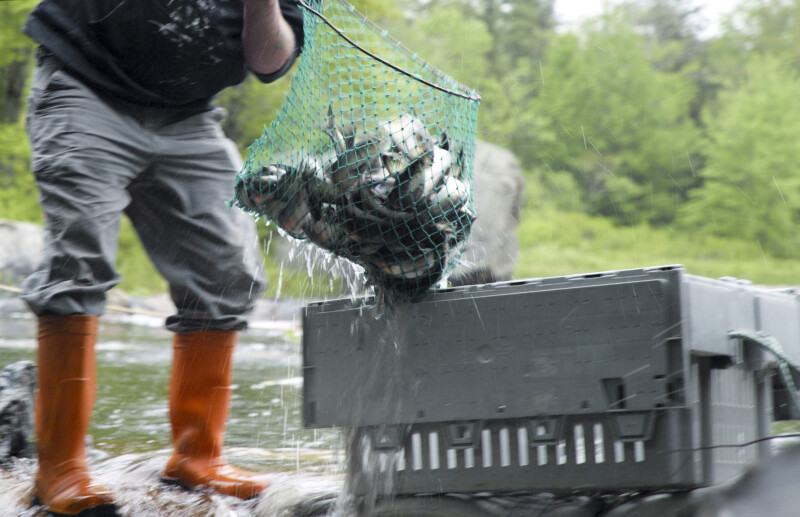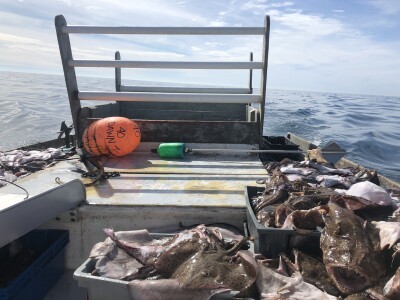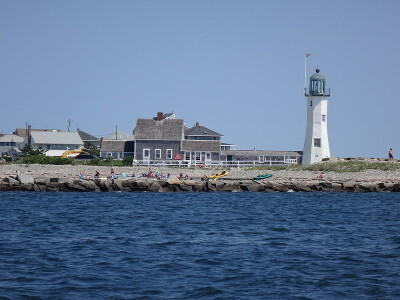For the past several decades, the state of Maine has been removing dams and building fishways intended to restore alewife runs, and it has paid off.
"In October 2024, the Atlantic States Marine Fisheries Council (ASFMC) approved five new commercial river herring [alewife] harvest sites in Maine. Quite a rarity in today’s fishery management landscape,” says Bailey Bowden, executive director of the Alewife Harvesters of Maine.
The minutes of the October 2024 ASFMC meeting state: “The updated Maine SFMP for river herring included the addition of five additional commercial fisheries: Sewall Pond, Wights Pond, Chemo Pond, Pennamaquan Lake, and Pushaw Lake.”
While southern states struggle to revive their shad runs, Maine has seen its efforts rewarded with burgeoning runs of alewives, and communities along the coast are taking the opportunity to cash in on this resource. In the last three years, Maine’s alewife landings have averaged around 3 million pounds, and the value of the fisheries has topped $1 million. These numbers are trending upwards and represent a significant leap from a low point in 1994 when harvesters landed 150 thousand pounds valued at $13,600.
"It takes a lot of work to open a run for commercial fishing,” says Bowden, who has the contract for the Wights Pond fishery on the Penobscot. “I started working on this in 2015. At the time, the state wanted four years of data, but that has since changed to 10 years.” Bowden has been operating a pilot fishery at Wights Pond for the last five years, harvesting a limited amount of alewives and collecting data. “It’s been frustrating at times, because the state wants to see 235 fish per acre, and I had 927 per acre, but not the 10 years of data.”
But with approval from the AFMC and the state, at last, Bowden will be able to fish commercially. The regulatory structure allocates the alewife fisheries to the municipalities where the runs occur, and these municipalities award the harvest contracts to individuals who hold state licenses. “You can get a harvester and crew license or individual,” says Bowden. “I have an agreement with the town of Penobscot that if I did the work to open this up, I would get the contract.”
Maine currently has 22 alewife runs being fished, and towns put contracts out for bid or make what arrangements they want. Harvesters primarily sell alewives as lobster bait and halibut bait, but a few get eaten. “There’s a restaurant in Rockland, Sammy’s Deluxe, that sells them,” says Bowden. “And we have an Alewife festival at Pierce's Pond near here. Last year, we had 300 people come for a three-hour event. This year it’s May 24.” Bailey notes that another Alewife Festival is being held the same day in Pembroke, Maine, to celebrate the opening of that town’s fishery on the Pennamaquan River.







